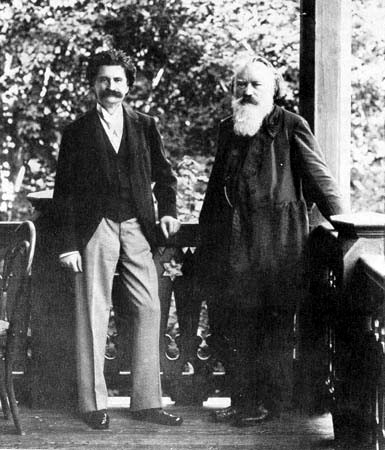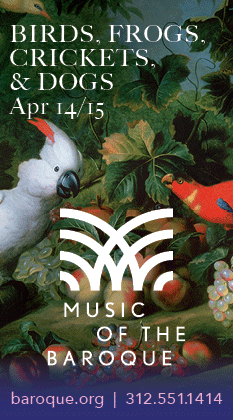Strauss salute leads off new year in Viennese style

The start of a new year—a time for taking stock and fresh beginnings, renewed vows to lose weight, disentangle that pesky sock drawer, and work on breaking in new good habits while curtailing the old bad ones.
Musically, of course, the first of January is synonymous with the Vienna Philharmonic Orchestra’s New Year’s Day concert, which has become an international rite of winter through the magic of tape-delayed television broadcast. Austrian producers Attila and Marion Glatz have deftly capitalized on the popularity of the annual Musikverein event with their Salute to Vienna concerts, which have become a participatory subspecies of the New Year’s tradition. Now in its fifteenth season, the concerts have expanded to twenty cities, bringing live performances of waltzes, operetta, and assorted festive Straussiana to North American audiences from New Brunswick to Costa Mesa.
Chicago’s Salute to Vienna concert, presented Sunday afternoon at Symphony Center, benefited from two elements: a well balanced program that offered less frequently heard items among the chestnuts, and the quality of the orchestra playing under conductor Hans Richter. While most Salute to Vienna performances have to conjure with local pick-up ensembles, Sunday’s Orchestra Hall audience got the superb Chicago Philharmonic Orchestra, made up of members of the Lyric Opera Orchestra and top local freelancers.
For being the great grandson and namesake of the legendary conductor who premiered two Brahms symphonies along with the first performances of Siegfried and Götterdämmerung, Richter proved a charming and untormented podium presence with his scripted bon mots, amiable good cheer and mane of good conductor hair.
Most essentially, the German maestro showed an innate hand with the Viennese style. Richter drew exuberant performances of two Suppé overtures (Poet and Peasant and Morning Noon and Night in Vienna), with notably noble and burnished brass playing. If his broad gestures sometimes seemed a bit extreme–at one point his baton clipped the edges of the podium and went flying into the viola section—Richter obtained winning and idiomatic performances, downplaying the bombast and drawing lithe, flexible playing with nimble dynamic marking that never sounded pedantic.
Anita Lukács and Zsolt Vadász supplied the requisite vocalism in the operetta excerpts. The Hungarian soprano was especially impressive, bringing apt Czardas swagger to her mocking diva-esque rendition of Heia, Heia in den Bergen from Kálmán’s The Gypsy Princess. Lukács also showed her gleaming top notes to fine advantage in a charming Mein Herr Marquis from Die Fledermaus.
Vadász provided more mixed rewards. The Hungarian tenor served up a vitally characterized Als flotter Geist from The Gypsy Baron though his rather grainy timbre and lack of sweetness likely didn’t motivate anyone to throw out their Richard Tauber recordings, as with his stentorian take on Dein ist mein ganzes Herz from Lehár’s Land of Smiles. Still the duo played off each other nicely and blended well in their duets, Weisst du es noch? from Gypsy Princess and Wer hat die Liebe uns ins Herz gesenkt? from Land of Smiles.
Of course, it was music of the Strauss family that was front and center, which was well served Sunday with Richer and company providing fizzing takes on Johann Strauss Sr.’s Fredericka Polka, Josef Strauss’s Moulinet Polka and Johann Strauss Jr’s Champagne and Freikugeln polkas.
Six dancers from the Vienna City Ballet lent graceful visual counterpoint and fitful wry humor to performances of Johann Jr.’s Künstlerleben and Morgenblätter waltzes, with Richter teasing the inflections and pointing the Luftpausen delightfully. Barbara Haffner earned a solo bow for acquitting herself well in several spotlighted cello solos.
Auld lang syne seemed like a bit of an Anglo-American anachronism Sunday but the traditional encores of On the Beautiful Blue Danube-–fleet and flowing with Germanic heaviness sheared off—and a rousing rendition of the Radetzky March sent the audience out into the Michigan Avenue chill with the requisite warm glow.
Posted in Performances




